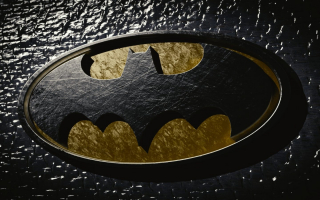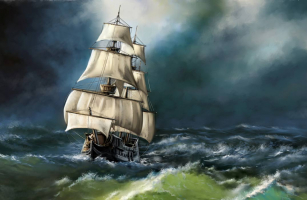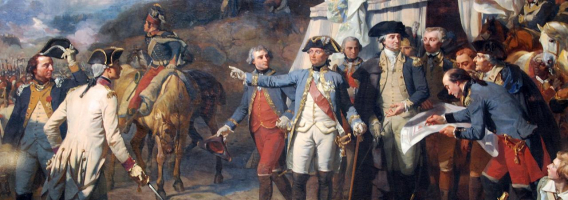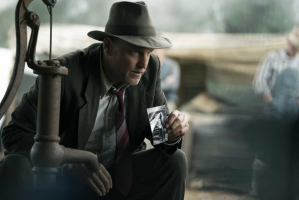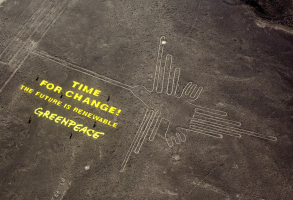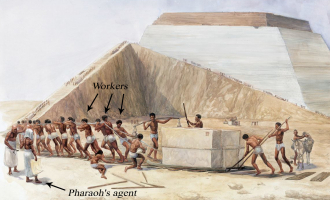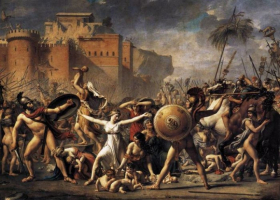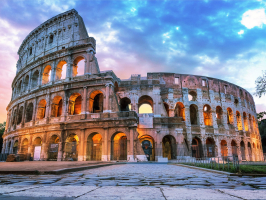Top 10 Historical Events that were completely overshadowed
"Timing is everything," they say. In the next ten examples, you'll see that it's not just about what you do, but also about when you do it. The following ... read more...important occurrences would have captured the public's attention on practically any other day. They did, however, coincide with something more significant that took much of their attention and turned them from headlines into footnotes.
-
Astronomers at Ohio State University using the Big Ear radio telescope on August 15, 1977, detected a peculiar signal coming from the Sagittarius constellation. Astronomer Jerry Ehrman wrote "Wow!" on the printout of the signal because it was so odd, sparking speculation that it might have been an extraterrestrial transmission.
Scientists had just captured what they thought might have been the first contact with extraterrestrial life.
You'd think it would be a pretty huge event, but unfortunately for them, they revealed their findings the day after Elvis Presley passed away, only a few hours later. As it turned out, news of the Wow! Signal was consigned to the newspaper's back pages because people were more interested in the monarch than they were in aliens.
The Wow! Signal has garnered renewed interest in the decades since it was first discovered, despite being mostly overlooked at the time. This is largely due to the fact that it has never been seen again and, despite numerous theories, is still not fully understood. Some have jokingly suggested that the signal came from the mothership as it was coming to pick up Elvis to take him home, and we must admit that that theory makes perfect sense to us.\
- Date:August 15, 1977

https://marketbusinessnews.com/ 
https://www.youtube.com -
The remarkable accomplishment of John Fairfax would have been honored on a grand scale on practically any other week in history. The British explorer launched his rowing boat from the Canary Islands at the beginning of 1969. His objective was to row across an ocean by himself, which had never been done before.
The trip to Fairfax started on January 20. The journey was estimated to be 3,600 miles, but because of unfavorable winds, it turned out to be 5,000 miles. With his supplies running low, the rower was forced to survive on the fish he could catch and the sporadic compassion of passing ships. But in the end, he was successful. After 180 days at sea, Fairfax arrived at the Florida coast on July 19. On July 19, Fairfax made landfall in Florida after 180 days at sea, making history as the first person to row solo across an ocean.
With "a great dinner, a bottle of Scotch, and two aspirin," he celebrated his accomplishment. Unfortunately for him, a bigger marvel of human achievement was occupying the attention of the rest of the world. The Apollo 11 astronauts made history by being the first humans to set foot on the Moon the very next day, July 20, 1969.- Date:January 20 - July 19 1969

https://www.nytimes.com/ 
https://www.wksu.org/ -
One particular incident comes to mind when the phrase "Pearl Harbor" is used: the Japanese surprise attack that took place there during World War II. Even though it was essentially the same thing, using the phrase "Clark Field" doesn't really work as well.
On December 8, 1941, the Japanese Navy Air Service began another attack on Clark Field, an American airbase situated on Luzon Island in the Philippines, some nine hours after the attacks on Pearl Harbor in Hawaii. Throughout the day, a few additional smaller attacks took place as part of Japan's strategy to deplete the opposition's air force before of its invasion of the Philippines.
One of the key reasons why Clark Field is not as well remembered as Pearl Harbor is because less damage and casualties were inflicted there. However, one item that is still a mystery is why none of the administrators were fired, especially considering that they had been aware of what had happened at Pearl Harbor for hours. The two in charge generals, Lewis Brereton and Douglas MacArthur, both attempted to place the blame on the other, but none faced serious consequences, unlike the authorities in Hawaii who lost their positions of authority and were pushed into retirement.
- Date:December 8, 1941
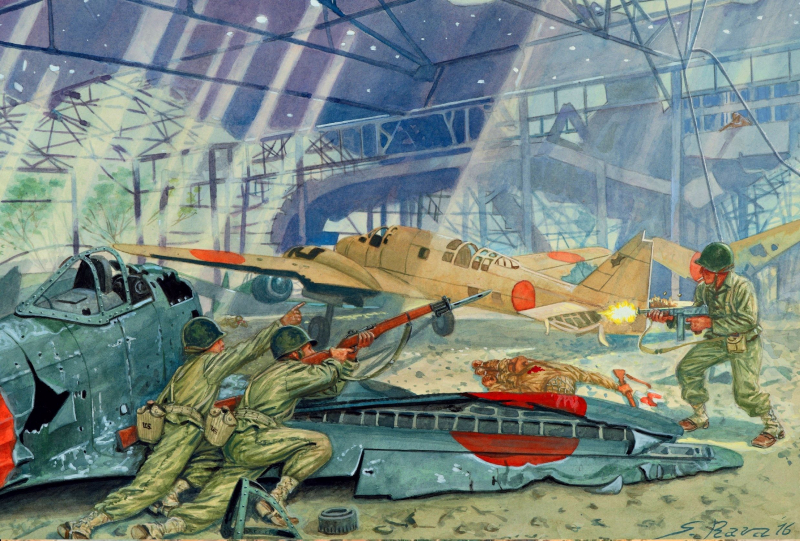
https://br.pinterest.com 
http://www.ww2online.org/ -
Let's move on to something a little lighter, like when the O.J. Simpson car chase caused everyone in America to stop watching the NBA Finals game. An NBA final may not seem like a big deal, but this one did mark a significant turning point in sports history. The Chicago Bulls superstar Michael Jordan decided to try baseball instead of hoops, and the 1993–1994 season was the first one without him. At NBC, there was a lot of concern that the NBA might face ratings difficulties without its most well-known star.
The league nevertheless believed it had a compelling narrative to share, even without MJ. Without the Chicago Bulls' hegemony, the Houston Rockets, headed by Hakeem Olajuwon, and the New York Knicks, led by Patrick Ewing, emerged as two new, formidable rivals.
The clubs reunited for Game 5 of the series on June 7, 1994, when it was knotted at two wins apiece. O.J. Simpson made the decision to lead the California police on a high-speed chase over the 405 Freeway during the game, though, in a white Ford Bronco. ... all of it was being carried live, with the exception of NBC, on every American station.Ultimately, the station decided to go with a picture-in-picture broadcast, giving the O.J. chase top billing on the large screen, as it was losing viewers like crazy. Still didn't function. That clash had the terrible distinction of having the lowest finals rating since the early 1980s, holding it up until 2003.
- Date:1993–1994

https://photos.com/ 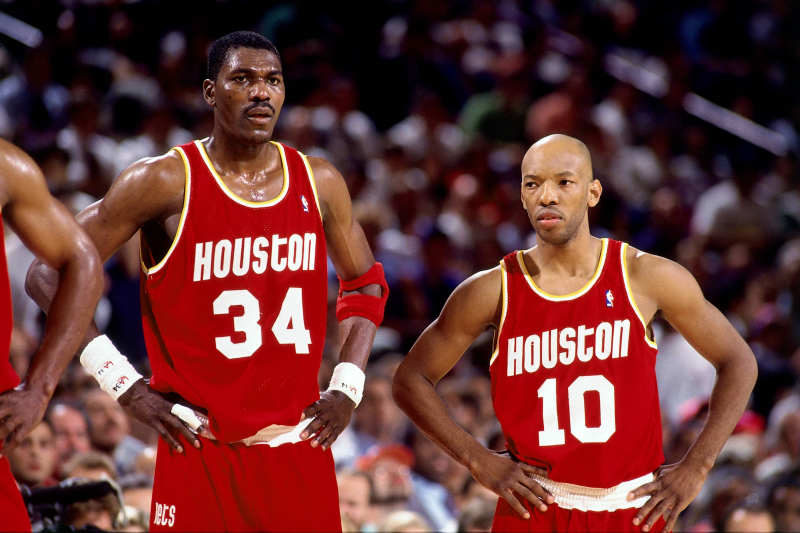
https://legendsofsport.blog -
The Pope’s Beatification is worth a place on this list. The world celebrated the life of one man on May 2, 2011, but they also celebrated the death of another, making it a peculiar day. Pope John Paul II was beatified and canonized in St. Peter's Basilica in Vatican City the day before, on May 1. Numerous heads of state and other dignitaries attended the spectacular occasion, but the next day it was all but forgotten.
Osama bin Laden, the most wanted man in the world, was killed in a raid on his compound in Pakistan by American special forces, commanded by SEAL Team Six, just hours after the event. Even though President Barack Obama made the official announcement that evening, the information had already leaked and was the topic of all conversation that day. The beatification of the pope was put on hold right away, despite the fact that certain people—including the president of Peru—tried to give him credit by saying that the killing of bin Laden was his miracle.
- Date:May 2, 2011
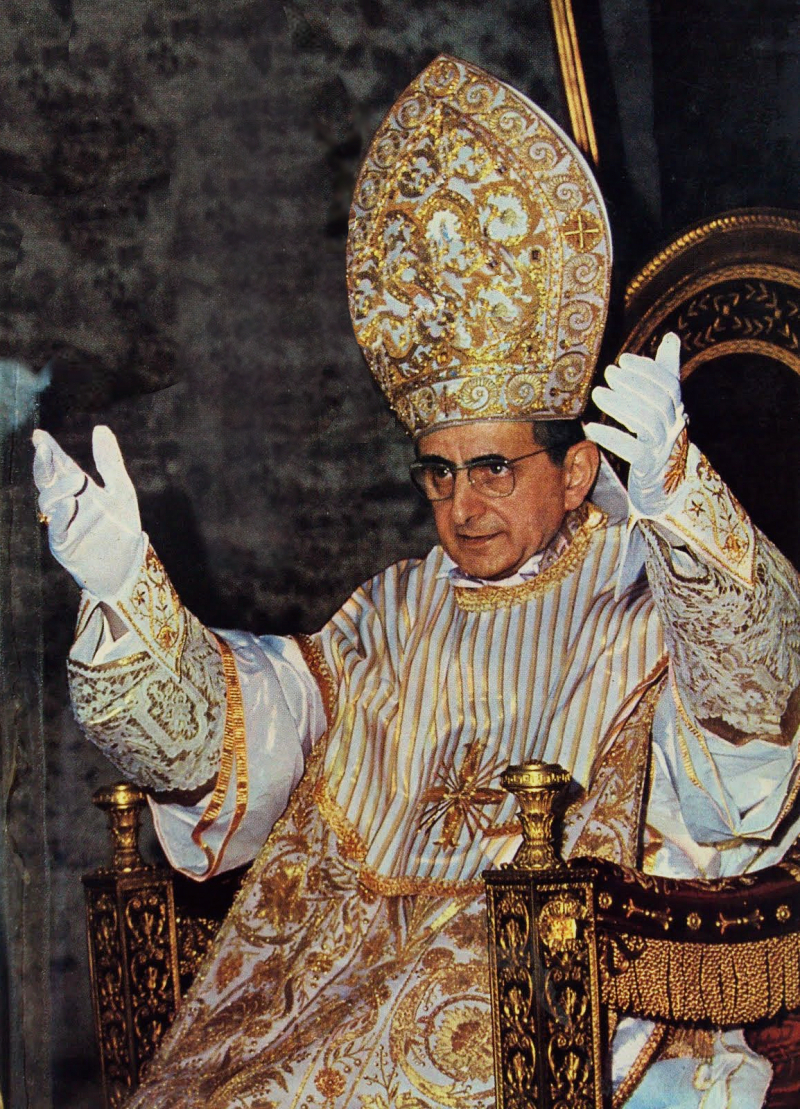
https://madmonarchist.blogspot.com/ 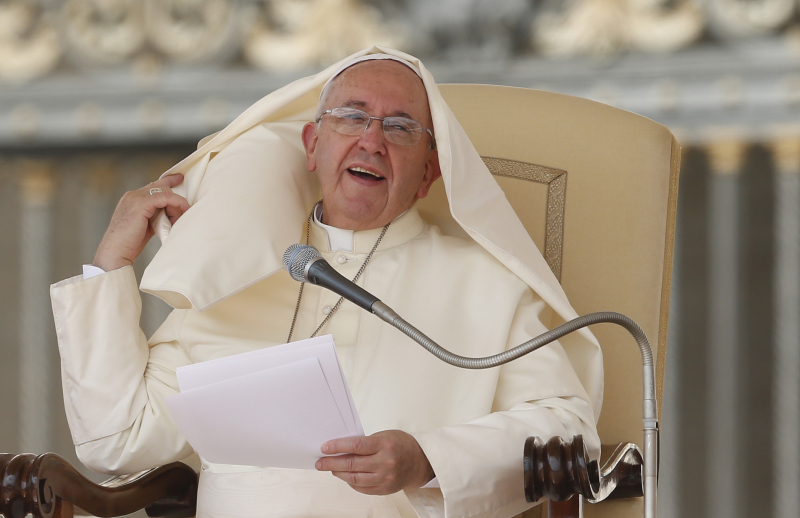
http://www.catholicsun.org/ -
One of the most important female aviators was Harriet Quimby, who made history on August 1, 1911, when she became the country's first woman to obtain a pilot's certificate. She passed away in a plane crash less than a year after receiving her license, so unfortunately her groundbreaking career also served as a reminder of exactly how risky flying was in its infancy.
But before she tragically passed away, Harriet Quimby was responsible for a number of aviation firsts, with her most notable success being the first woman to fly across the English Channel. Less than three years after the first-ever airplane crossing was made, this took place on April 16, 1912. Harriet's 69-minute journey nearly ended in disaster when her engine flooded and she lost visibility in dense fog. Despite being off-course, she eventually made it to a French beach close to Hardelot without incident.
Locals rushed to surround the aircraft and showered Harriet with enthusiastic applause and cries, although they were essentially the only ones to do so. The Titanic disaster, one of the most historic incidents of the 20th century, had occurred just two days earlier and was the only thing on everyone else's mind.- Date: April 16, 1912
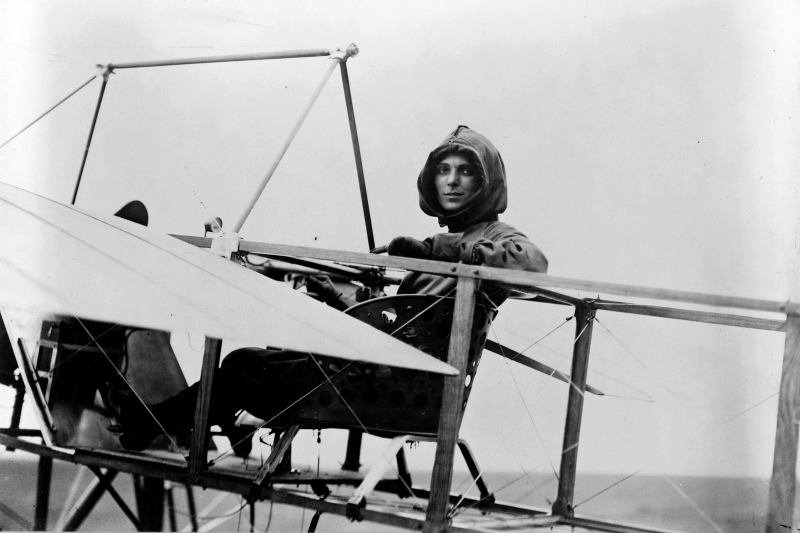
http://womenshistory.about.com/ 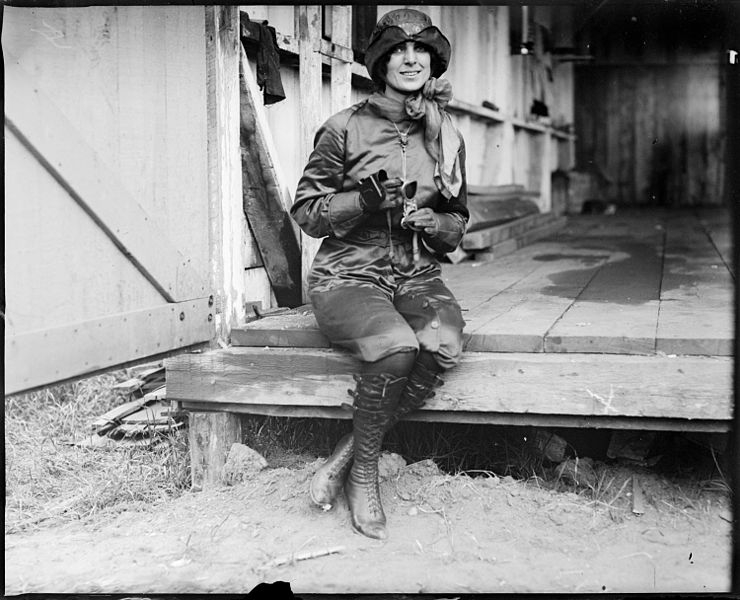
https://airwingmedia.com/ -
When they performed the Black Power salute during the medal ceremony for the 200-meter sprint at the 1968 Olympic Games in Mexico City, American track and field athletes Tommie Smith and John Carlos made what is possibly the most iconic political statement in Olympic history. The protest that took place during the next Summer Olympics in Munich was less famous than the picture of the two of them raising their fists in the air.
Similar circumstances existed: for the 400-meter event, Vince Matthews and Wayne Collett, two Black Americans competitors, took home the gold and silver medals, respectively. The two of them then gathered on the first-place platform during the medal ceremony as the American national anthem began to play, engaged in casual conversation, fidgeted, and played with their medals with their backs to the flag.
The International Olympic Committee responded to the pair's protest by banning them from future competitions and criticizing them for being rude. However, their deeds were rapidly forgotten as the Munich atrocity came to define the 1972 Olympics. Black September, a Palestinian terrorist organization, assaulted the Olympic Village during the second week of competition, killing 11 members of the Israeli Olympic team as well as a West German police officer.- Date:1972
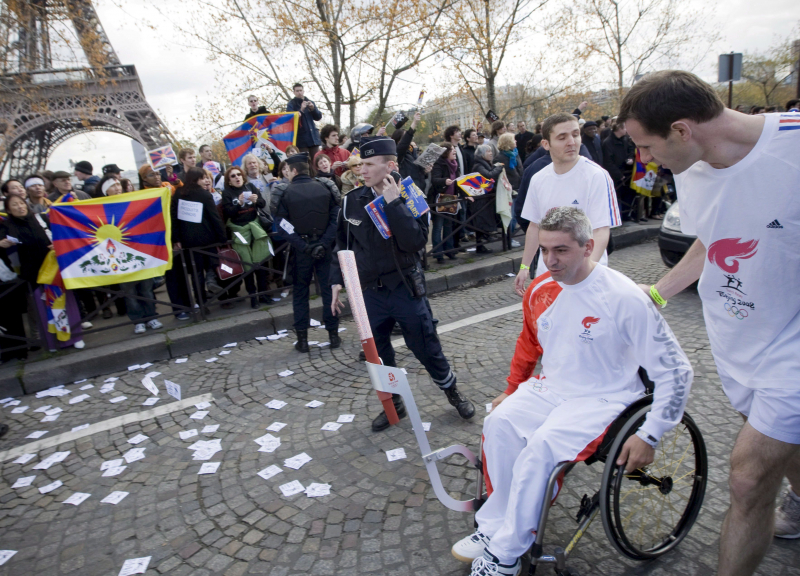
https://eveningreport.nz/ 
https://www.thesnipenews.com/ -
There are numerous instances of well-known people whose passing went unnoticed because it occurred on the same day as someone even more well-known than they were. However, in this instance, there were actually two British authors that were overshadowed, not just one.
The Chronicles of Narnia fantasy series was written by C.S. Lewis, an academic at Oxford and Cambridge Universities. Aldous Huxley, whose most well-known work is the dystopian sci-fi classic Brave New World, was a prolific writer who produced approximately 50 works and was nominated nine times for the Nobel Prize for Literature.
Both men passed away on November 22, 1963—Huxley from cancer and Lewis from kidney failure—but there was hardly any press mention of their deaths. They died on the same day that President John F. Kennedy was assassinated, earning them the title of "champions of badly timed death," according to the New York magazine.
- Date:November 22, 1963
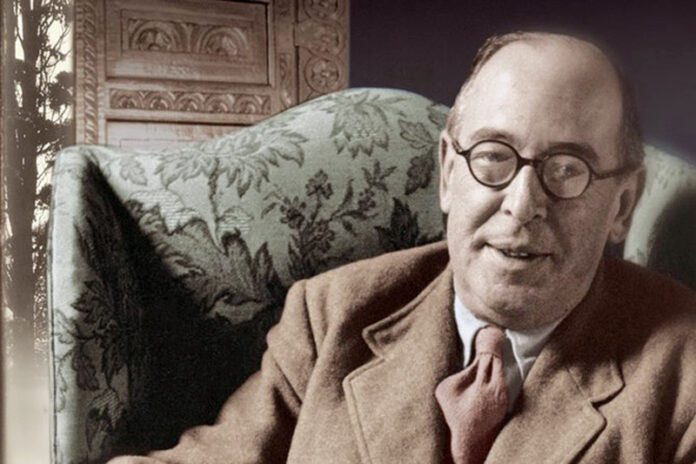
https://www.godreports.com/ 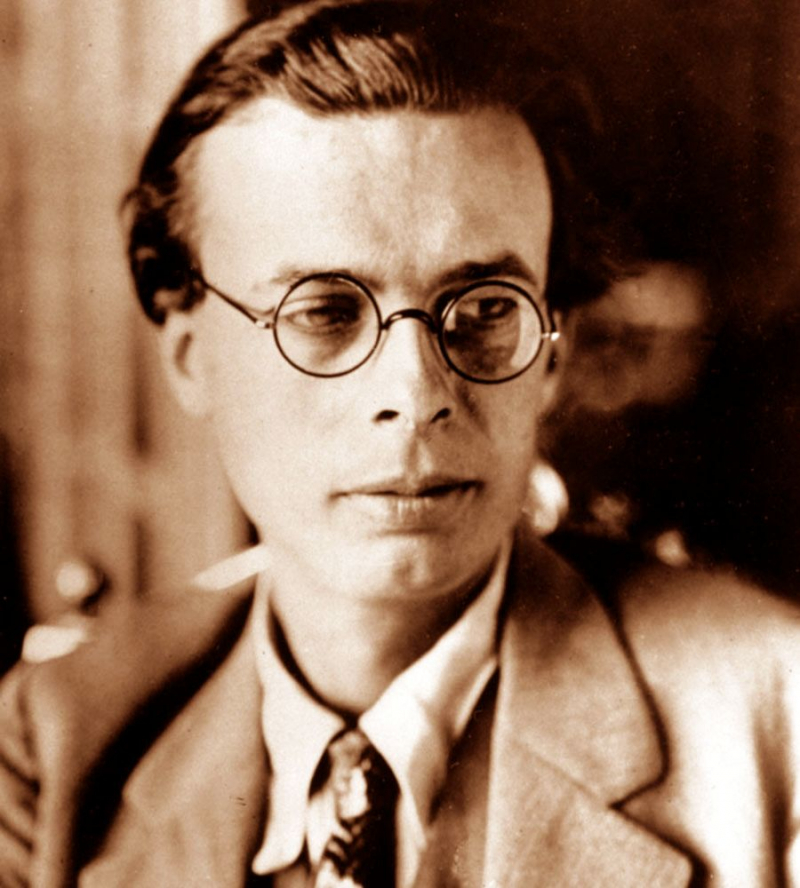
https://philosophyofscienceportal.blogspot.com -
The Liberation of Rome is another name Toplist would like to mention. During World War II, the Liberation of Rome was a crucial turning point. Italy signed an armistice with the Allies after Mussolini was overthrown in 1943, but shortly afterward, Germany attacked and occupied the country's northern and center regions. The Allies succeeded in liberating Rome after nine months of fierce battle, and on June 4, 1944, they made their way into the city. Rome was the first capital to escape the Nazis' grasp as a result.
The Allies gained a lot of momentum and a strategic success, but they had no intention of resting on their laurels. Before the world could comprehend this information, another event occurred that grabbed everyone's attention. A gigantic Allied force stormed the beaches in Normandy on D-Day, the greatest seaborne invasion in history, to start the liberation of France just two days after Rome was freed.
- Date: June 4, 1944
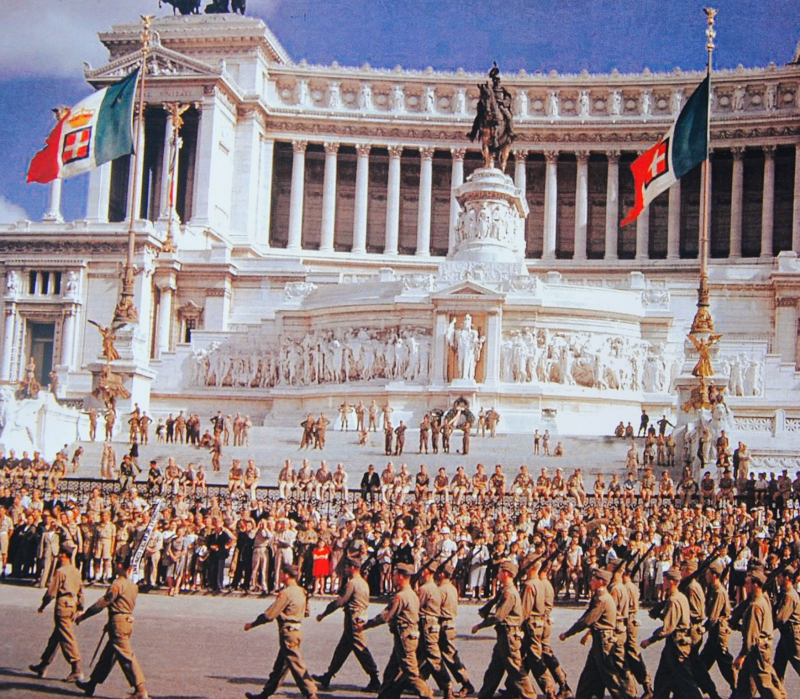
https://orbiscatholicussecundus.blogspot.com/ 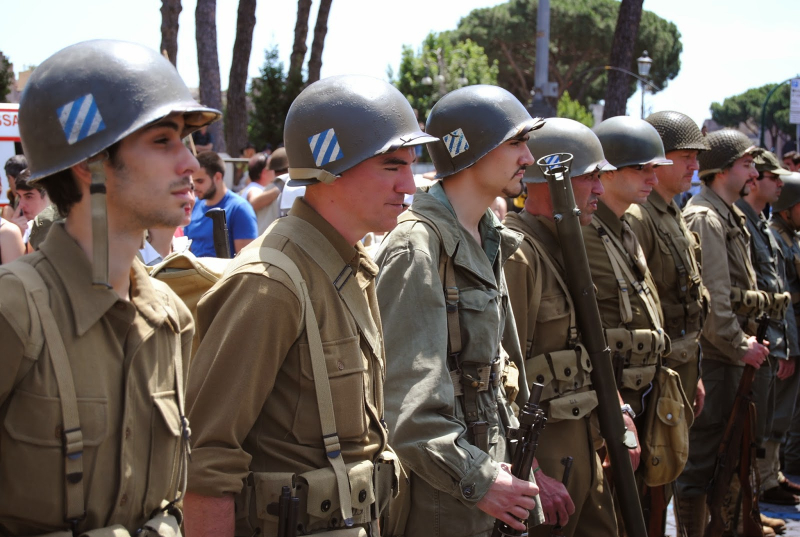
http://orbiscatholicussecundus.blogspot.com/ -
A significant forest fire broke out on October 8, 1871, in a Wisconsin logging region close to the little community of Peshtigo. Between 1,200 and 1,500 people perished in the terrible firestorm, which scorched over 1.2 million acres of land and may have been the deadliest wildfire in American history. You'd think that a catastrophe like that would make the front page of every newspaper in the nation.
Not exactly, as the Great Chicago Fire also occurred on the same day. That fire occurred in one of the largest cities in the nation, so it comes as no surprise that it received far more media and public attention even though the death toll there was much lower. Even though it was discredited decades ago, the myth that Mrs. O'Leary's cow set the disastrous fire by tossing a lamp onto a stack of hay is still widely believed today.
The Peshtigo fire, which wasn't even the only one, is now seldom remembered outside of Wisconsin. The same weather conditions that fanned the flames in Peshtigo are believed to have caused or at least contributed to a number of additional fires that day that spread throughout the Midwest.- Date: October 8, 1871
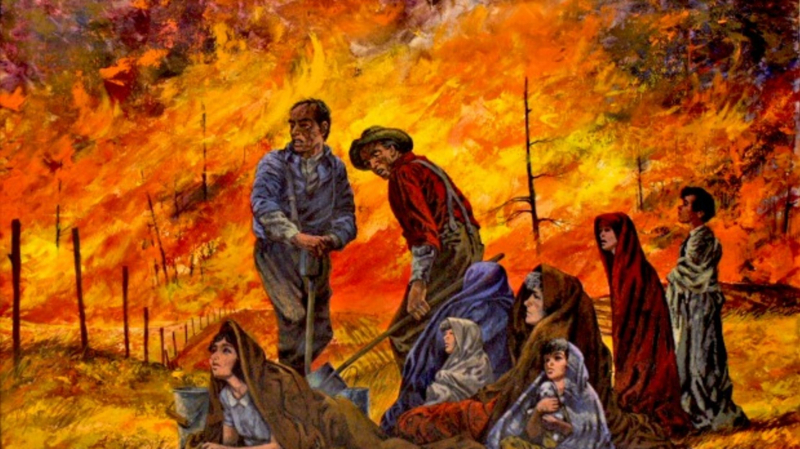
https://www.mentalfloss.com 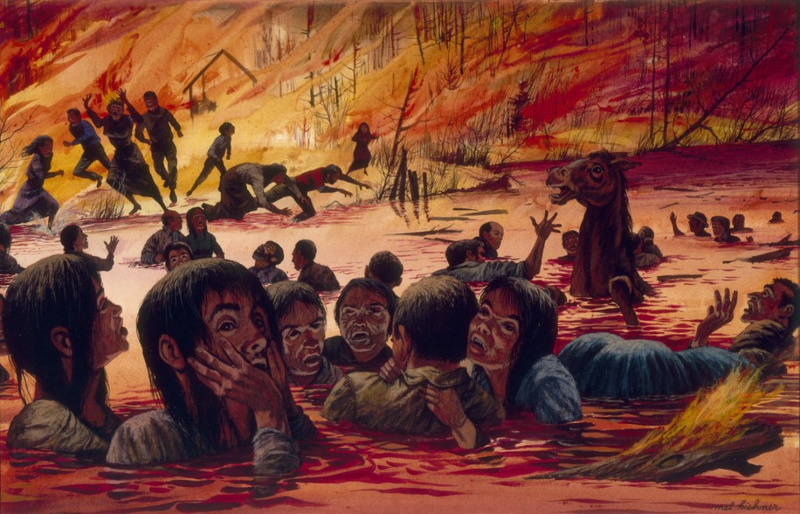
https://www.washingtonpost.com/















